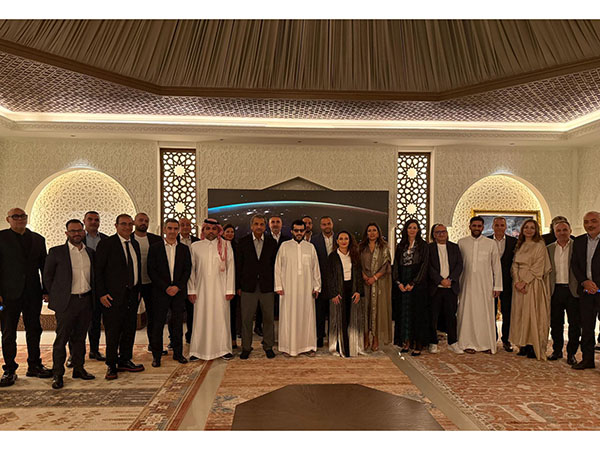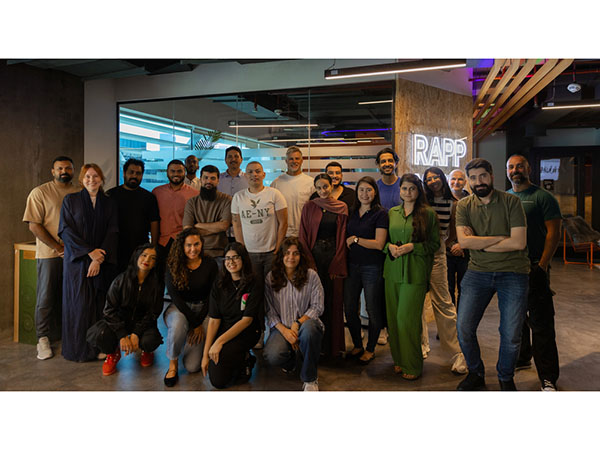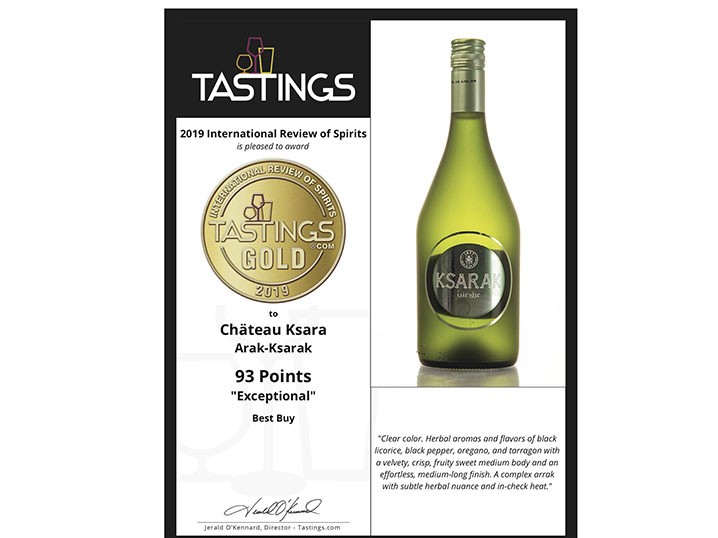News - News In Brief
Ksarak from Château Ksara wins gold in the US
June 6, 2019
Château Ksara, Lebanon’s leading winery, once again demonstrated its pedigree, and high standards of craftsmanship, when Ksarak, the winery’s arak, took the Gold Medal in the “Best Buy” category at the 2019 International Review of Spirits in Chicago.
The judges were unanimous in their findings, declaring that Ksarak possessed all the elements of an outstanding spirit. The official citation read: “Clear colour. Herbal aromas and flavours of black liquorice, black pepper, oregano and tarragon with a velvety, crisp, fruity sweet medium body and an effortless, medium-long finish. A complex arak with subtle herbal nuance and in-check heat.”
Ksarak is triple-distilled and infused with aniseed, sourced exclusively from the village of Heeneh on the foothills of Mount Hermon, and then aged for 28 months in locally-made clay amphorae. Similar to the aging process of Scotch whisky, the arak loses 11 to 12% - the so-called Angels’ Share – during the maturation process.
Ksarak is made with Merwah and Obeideh, two ancient Lebanese grapes, and Ugni Blanc, a variety used in the production of Cognac and Armagnac, which valued for its freshness and which was planted by the Jesuits, who founded Château Ksara in the Bekaa Valley in 1857.
Arak, Lebanon’s national drink, can trace its origins back to the 7th century and many historians believe it to the father of all spirits and the drink that inspired the great eaux de vie of the Mediterranean basin.
Château Ksara is mainly known for its award-winning wines, but given its close relationship with the grape has always produced arak. Like Château Ksara’s wines, Ksarak is a staple on the Lebanese dining table where diners value its palate-cleansing qualities when eating the many mezze dishes.
“We are proud that our dedication to quality and artisanal distillation has been recognised by such a distinguished body,” said Château Ksara’s President Zafer Chaoui.
Ksarak is an outstanding spirit and a wonderful example of a proud tradition,” said Michael Karam author of “Arak and Mezze: The taste of Lebanon”.
“Arak is the “stealth” spirit. It has, till now, flown under the radar of all but the world’s connoisseurs but we hope that now it will achieve the popularity it deserves outside Lebanon.”
Recommended

Turki Alalshikh leads landmark meeting in Jeddah with media industry leaders

RAPP MENA committed to employees' well-being and work-life balance







